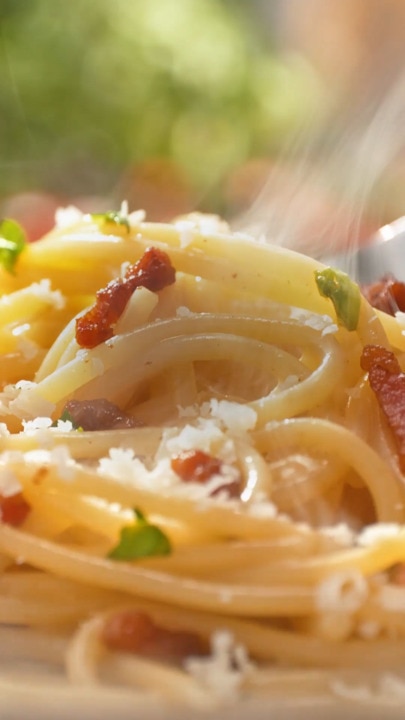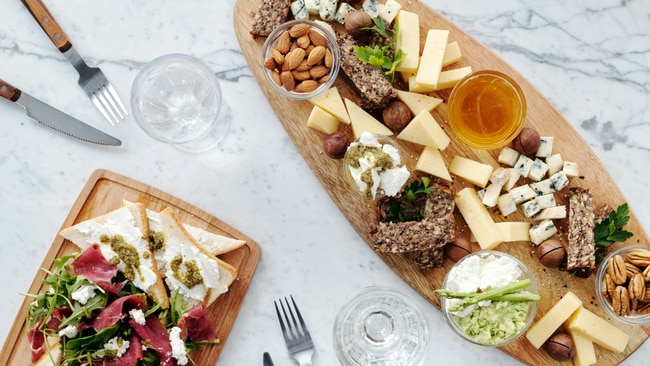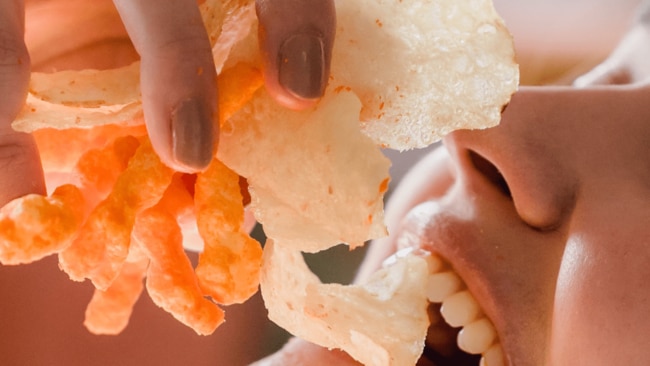5 foods that constantly derail your diet
Stop sabotaging yourself

Lifestyle
Don't miss out on the headlines from Lifestyle. Followed categories will be added to My News.
Stuck in the same vicious dieting cycle without seeing results? Here's why your snacking choices could be derailing your health goals.
While it is not individual foods, rather dietary patterns that ultimately impact health and weight over time, there are certainly some foods that may be more triggering or easier to overeat than others. This may be the result of early programming, habits built over time or because some foods are especially sweet or rich, and drive the brain to seek out more of the same taste and flavour.
The issue with this is that when such foods are especially high in fat, sugars or calories, they can negatively impact the energy balance equation and result in weight gain over time. Here are some of the most common foods that derail your diet, and the easy ways to keep consumption under control.

#1. Chocolate
It is the rich, creamy taste and texture of milk chocolate in particular that can mean that it is more than difficult to stop eating after a single square or two. Relatively high in sugar and fats, with just 20g of chocolate containing more than 100 calories and 8-10g of fat, in many cases we are better to avoid keeping chocolate within easy reach than we are to think we will really to stick to a 20-30g serve on any given occasion.
There is some evidence that reaching for dark chocolate over milk and flavoured varieties may help to curb consumption, but ultimately, the key is portion control, so if you know you have difficulty keeping portions controlled, it will be best to not keep large volumes of this food favourite within easy reach.

#2. Cheese
Your preference may be a creamy Brie, a tasty cheddar or a tangy marinated feta, and while cheese has a number of positive nutritional attributes, it is certainly a food that is exceptionally easy to overconsume, especially on a decadent cheese platter. A 30g serve of full fat cheese contains just over 100 calories, 10g of fat and 7g of protein and whilst enjoying more occasionally is no cause for concern, sticking to a 30-40g portion on nay given day, or following a ‘cheese once a day’ rule will help to keep consumption under control.
The good thing about cheese is that you can easily keep portions controlled, with thin slices of French cheese, spreads of options like goat’s and feta, and extra-thin, shaved slices of cheddar – smaller serves that mean it may be possible to eat plenty of cheese, minus too many extra calories.
#3. Cakes and pastries
Whether it is a freshly baked muffin or slice of banana bread with your morning coffee, a pastry or doughnut on the weekends, or cake at various celebrations, whilst such foods are generally more indulgent treats, modern life means that we may consume some sort of cake or pastry on more days than not.
Exceptionally high in processed fats, ideally, these types of high-calorie foods should not be consumed more than once each week, which may mean that curbing more regular consumption may come down to saying no a little more often.

#4. Salty snacks
It is not by chance that you are able to down an entire packet of corn chips or flavoured potato crisps without noticing. Salty snacks are often seasoned with a range of flavour enhancers that drive the brain to seek out more and more of the delicious, manufactured flavours.
For this reason, opting for minimally flavoured varieties which are made with a base of potato or corn, oil, and salt will naturally help to keep portions controlled. As a high-fat food, whether your preference is for crisps, cheese snacks or corn chips, the key to avoid overeating is to keep them as a party treat and enjoy occasionally only, as nutritionally they offer very little other than fat, processed carbs and calories.

#5. Wine
Ultimately, there is no ‘safe’ amount of alcohol; rather, the less we consume overall, the better. But for regular wine consumers, the issue that comes with opening a bottle is the drive to finish the bottle, which can quickly become a habit.
If you know that sticking to just 1-2, 100ml glasses will not happen, you are best to avoid opening the bottle, but one option may be to swap some of the growing range of zero alcohol options. Here, you can still enjoy the ritual of having a glass of wine, minus the alcohol and plenty of extra calories
More Coverage
Originally published as 5 foods that constantly derail your diet





